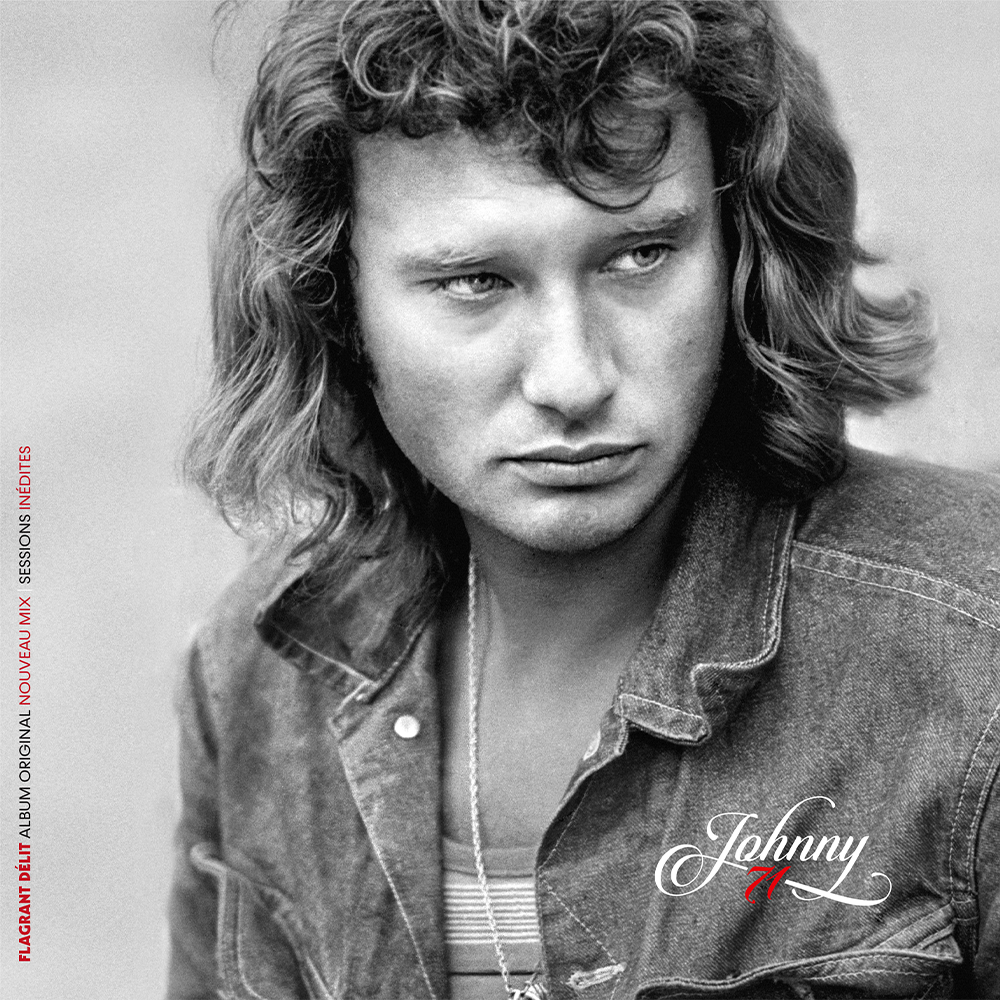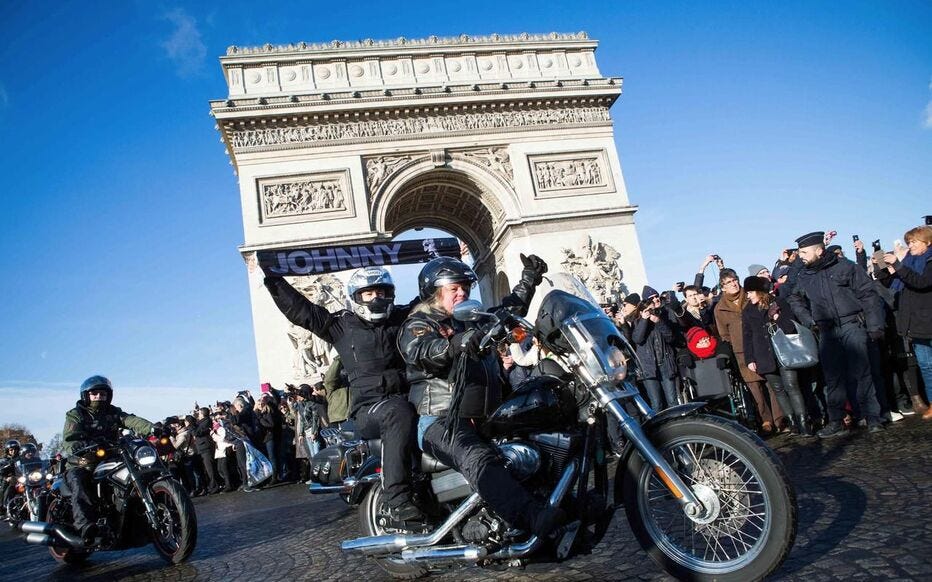The Immortal Schmaltz of Johnny Hallyday
Ubiquitous, committed and completely without irony, Johnny was France's rock icon
This was supposed to be another dive into the archives. There is so much music I’ve been meaning to get back to. I love to get into small and odd bits of history, but it’s easy to get lost in it. Francophone artists have explored almost every musical genre or about every global music trend of the last 100 years. It’s impressive. Instead of all of that, however, I just got stuck on Johnny Hallyday.
That’s not so hard to do. Hallyday has had an amazing, bizarre, schmaltzy and inimitable career in France, not just as a musician, but as an ever-present fact of French culture.
And just to be clear, I like Johnny Hallyday, even if he’s not the type of artist I listen to all the time. He always seemed to know where his strengths lay and he is iconic of the pieces of France that I enjoy most: a bit corny, a bit sentimental, but an absolute French icon.
conception
Johnny Hallyday (born Jean-Philippe Smet in 1943 in Paris) was one of those artists that people say they don’t like, but they sing along. they know the words. He’s on every karaoke set list multiple times a night.
I have heard 2 different sets of parents tell their children they were conceived while their parents were listening to Johnny Hallyday.
I haven’t taken a wider survey.
Johnny
Johnny wasn’t just a rock star: Johnny was a genre unto himself.
The man spent decades filling stadiums. He was everywhere.
He sold over 110 million records, with 60 studio albums, 66 live albums, over 100 compilations, and 165 singles. He had five Diamond-certified albums, including Sang pour sang (2 million copies sold) and Mon pays c’est l’amour (1.5 million+).
But then I was talking about him to some anglophones in a bar recently, they said, “Who the fuck’s Johnny Hallyday?”
Though wildly successful in France and other francophone countries in Europe and Canada, his fame never truly extended beyond—he was virtually unknown in the U.S. and U.K.
This is why I write this blog.
Requiem pour un fou - Johnny Hallyday (live in 1993)
He’s often called France’s Elvis (if you search for France’s Elvis, you’ll see what you get). But he’s also maybe James Dean, Bon Jovi, Bruce Springsteen, Bowie? Sinatra? Cher?... all rolled into one leather-jacketed, Harely-riding legend.
There’s hardly a musical trend in the last 5 decades he didn’t try, while staying true to his balladeer roots, even with a brief venture into rap.
Hallyday always seemed to know how to push his limits, at least musically.
It works, funny enough.
I could devote the rest of this Substack to Johnny Hallyday and have material for years. And very likely, a lot of followers.
I will never say anything bad about Johnny Hallyday while I am living in this country.
Hallyday did Vegas-style excess in France with total sincerity.
He was BIG. Jesus–Elvis–Godzilla–Madonna big.
There are 4 statues dedicated to him in France – 2 in Paris.
The government gave him a “hommage populaire” upon his death—a public funeral procession down the Champs-Élysées, flanked by motorcycles, watched by a million people. Macron gave a eulogy. Old rockers cried. People lit candles outside record shops.
Even if you didn’t like his music, you couldn’t ignore him. He was baked into the DNA of French pop culture—loud, over-the-top, but somehow deeply loved.
His posthumous 2018 album broke records with 780,000 copies sold in its first week.

More on this
I wrote about Hallyday’s early career. You can see how why he was popular early on…
French Music: Johnny Hallyday, the French Elvis
Johnny Hallyday, know as the "French Elvis," was a towering figure in French pop culture with a dynamic career spanning six decades. He neatly answers the question, “What if Elvis had survived?”










That rap song is a low key bop!
Johnny was mega. Like all other famous celebrities you only need to use his first name. I didn't particularly care for him in the ye ye days. Later as he worked on his voice I was drawn to him. Going to one of his concerts was like going to a cathedral. I went to two and they were worth every penny. His on stage persona was that of a giant but he was a gentle one. He really adored his fans and they worshipped him. He is a true French icon.